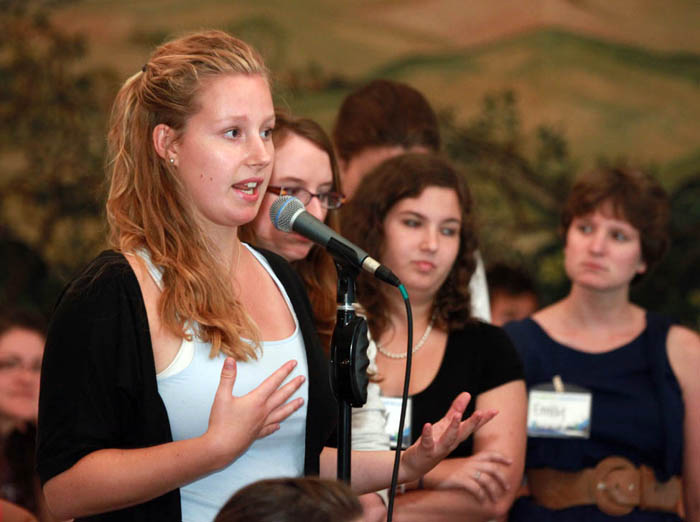
Last week I attended the Campus Progress annual conference along with a number of my co-workers from Enough. The conference focused on not only energizing but training young progressive activists as the 2012 campaign approaches. I thought it would be an interesting and informative event, and I was not mistaken. A reporter asked me about my opinion of President Obama’s record. I told her, "I think there are some, not broken promises, but the realities of Washington sort of hit a lot of people hard, especially young people who have lofty goals and big dreams, and it's hard to face reality sometimes."
When answering I was initially thinking of a few domestic issues: gay marriage, the DREAM Act, a fair tax system, D.C. voting rights. You know, progressive ideas that Center for American Progress employees fantasize about. And since I work at the Enough Project, where we deal with U.S. foreign policy toward Sudan, Congo, and the problem of the LRA on a daily basis, I was thinking about some of the shortcomings in the Obama administration's response to those conflicts.
While I laud the president on the focus and commitment towards the South Sudan issue, it is hard to give him and his administration much credit for working on the problems associated with the Lord’s Resistance Army or the plight of the Congolese. Like I mentioned above, it is easy to get caught up in the “lofty dreams.” For example, the president released a strategy that contains the requisite strategic objectives to end the LRA. However, it lacks the necessary details about how exactly the U.S. will achieve the strategic objectives, not to mention a lack of funding. This is a prime example of idealistic thinking getting bucked by the realities of Washington politics. Also, when Secretary Clinton visited eastern Congo in 2009, it was seen as a momentous occasion, and many hoped it signaled the beginning of new U.S. attention to ending the suffering in the region. Secretary Clinton pledged to focus on the terrible situation for women and girls in eastern Congo, but there has been little follow through.
I must give credit where credit is due. I know it’s a hard job to be the president of the United States. In fact, it’s probably the hardest. But that is in part because as Americans, we strive for and expect greatness. Many progressives had very high hopes for President Obama’s commitment to a different type of foreign policy, one defined by a longer-term view of what would make the world more peaceful, like investing in conflict prevention to ward of crises that become exponentially more deadly and expensive when they erupt. If the president wants to do better on African affairs, the LRA and eastern Congo are good places to look.
Photo: Young activists line up to ask a question at the 2011 Campus Progress event (Enough)

